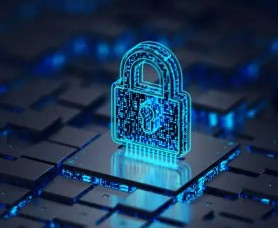Introduction:
In today’s digital world, almost everything we do—shopping, banking, working, even socializing—happens online. But with so much convenience comes risk. Cyber threats are real and growing. Whether you’re a student, a working professional, or just a curious learner, understanding the basics of cybersecurity is no longer optional—it’s essential.
Let’s break down cybersecurity in the simplest way possible—so you can protect yourself and your data without needing to be a tech expert.
🔐 What is Cybersecurity?
Cybersecurity refers to the practice of protecting computers, servers, mobile devices, networks, and data from malicious attacks. It’s like having a digital lock on your personal information.
Cybersecurity covers:
- Data protection
- Network security
- Device safety
- Secure internet behavior
🚨 Common Cyber Threats You Should Know
- Phishing Attacks
Fake emails or websites that trick you into sharing passwords or financial info. - Malware
Malicious software like viruses, worms, and spyware that infect your devices. - Ransomware
A type of malware that locks your files and demands money to unlock them. - Social Engineering
Tricks that manipulate you into giving away sensitive info (like OTPs or login credentials). - Public Wi-Fi Attacks
Hackers can intercept your data when you’re using open or unsecured networks.
🛡️ Simple Steps to Protect Yourself Online
- Use Strong, Unique Passwords
Avoid “123456” or your name + birthdate. Use a password manager if needed. - Enable Two-Factor Authentication (2FA)
Always add an extra layer of security to your logins. - Keep Software Updated
Updates often contain security patches. Don’t ignore them. - Avoid Suspicious Links and Emails
Never click on links from unknown senders. Always verify the source. - Install Antivirus and Anti-malware Tools
Tools like Bitdefender, Norton, or even Windows Defender offer real-time protection. - Use a VPN on Public Wi-Fi
It encrypts your internet traffic and keeps you safe from eavesdroppers.
🌐 Why Cybersecurity Matters for Everyone
Even if you’re not a tech professional, you’re still a target. Hackers don’t just attack companies—they go after regular people too. A small mistake like reusing a password can lead to:
- Identity theft
- Bank fraud
- Loss of important personal data (like photos, documents, etc.)
So taking a few precautions can protect you from major damage.
🚀 Getting Started with Cybersecurity Learning
If you’re curious to learn more, here are a few free beginner-friendly resources:
✅ Final Thoughts
Cybersecurity isn’t just a techie’s job anymore—it’s everyone’s responsibility.
Start small. Update your passwords. Avoid clicking suspicious links. And most importantly, stay informed.
🔒 Remember, you don’t need to be an expert to stay safe—you just need to be aware.
📣 Call to Action:
Liked this beginner’s guide?
👉 Share this with friends and family who need to boost their online safety.
💬 Got questions? Drop them in the comments or message us on Being Techie.



Leave a Reply